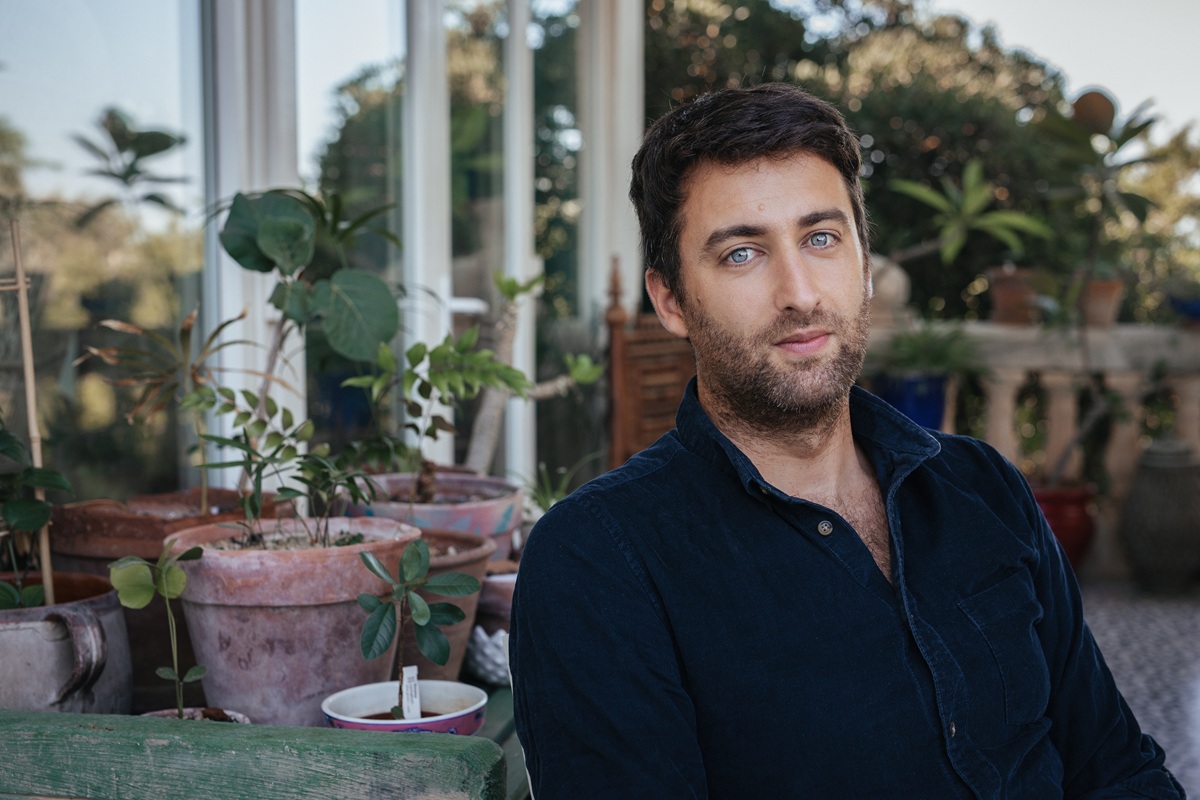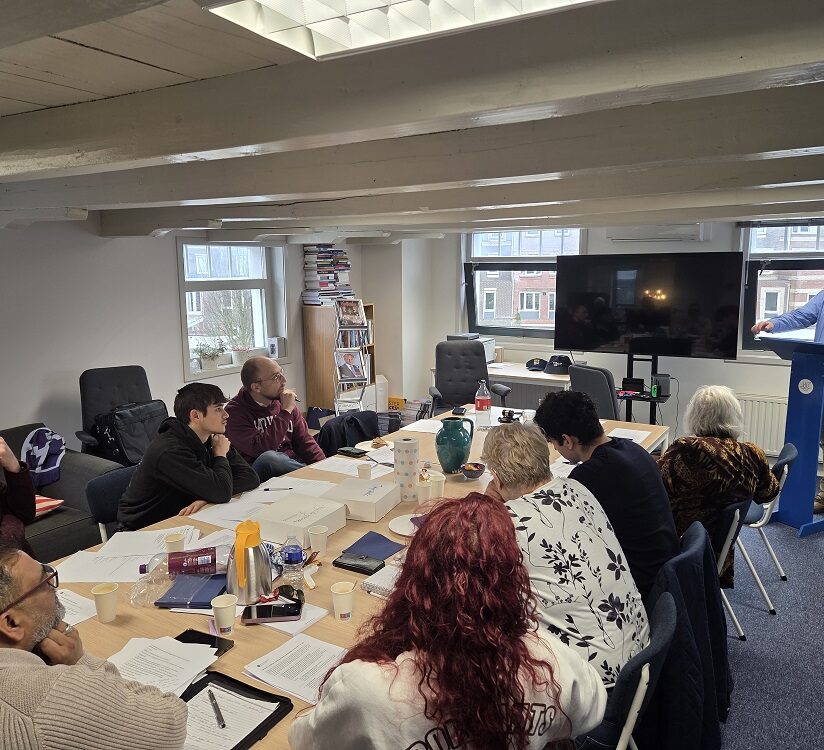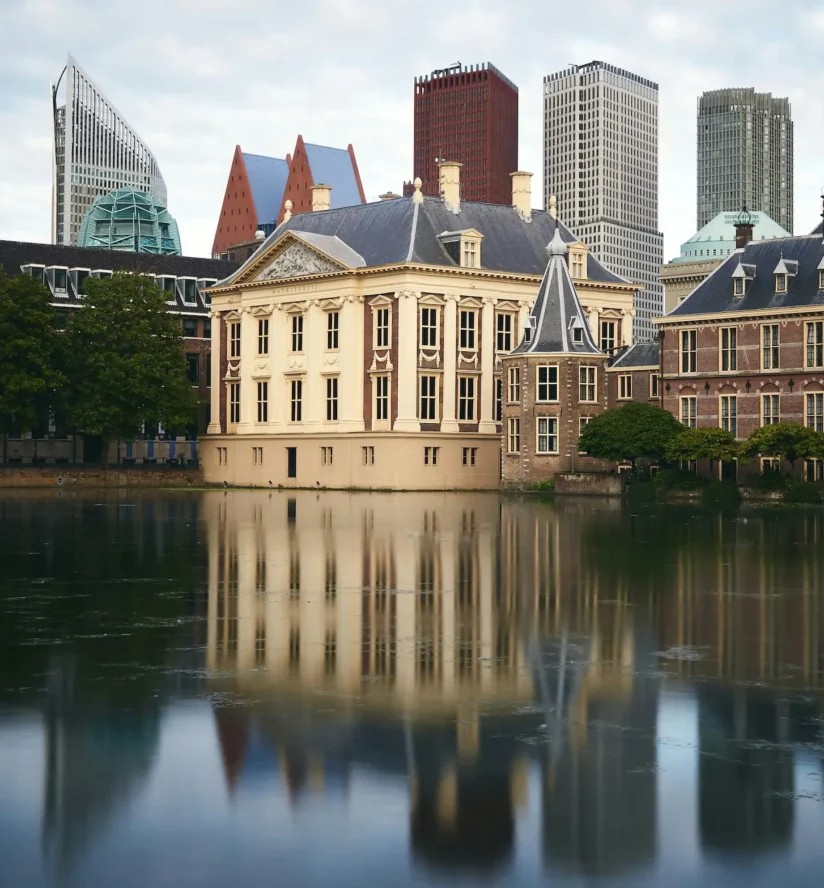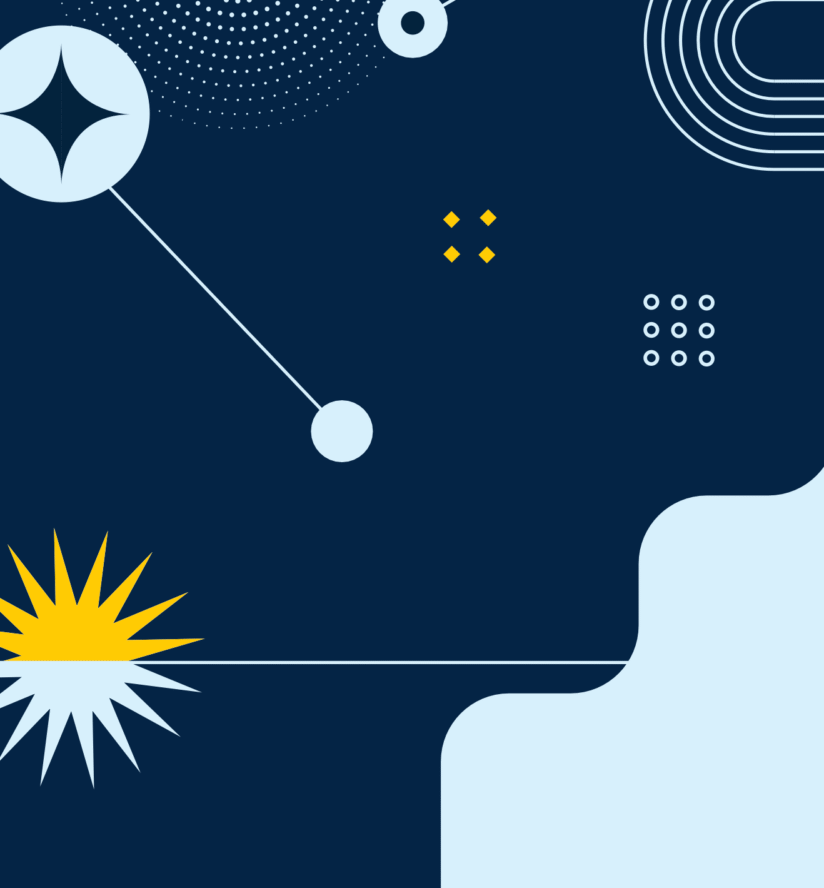[Download the full article (PDF) via ‘Download Publicatie’]
“Without strong institutions, impunity will become the norm”
About the murder of his mother, the search for justice and the struggle for the Rule of Law in Malta
On October 16, 2017, Daphne Caruana Galizia , Malta’s most famous investigative journalist, was assassinated by a car bomb. She had spent years exposing corruption at the highest levels. Her death shocked Europe and became a symbol of the dangers facing investigative journalists worldwide. Eight years later, her son, Matthew Caruana Galizia, speaks out, an investigative journalist himself and director of the foundation named after her, at the New Social Contract symposium on twenty years of work by Pieter Omtzigt in the Council of Europe.
Speaking to Bulletin , he reflects on the circumstances of the murder, the role Omtzigt played in enforcing justice, and the broader lesson that democracy can be eroded in a few years if institutions are not defended.
“A murder made possible by a weakened Rule of Law”
Matthew Caruana Galizia vividly remembers the conditions under which his mother conducted her work. “She investigated large-scale corruption at the highest levels. The evidence was out in the open, but the police and judiciary refused to intervene. The government had effectively sidelined the institutions that were supposed to investigate corruption.”
At that time, Daphne was practically the only one who still dared to publish. Meanwhile, more than forty lawsuits were filed against her – so-called SLAPP cases (Strategic Lawsuits Against Public Participation) aimed to silence her. When that didn’t work, they resorted to the last resort. “They tried everything: neutralizing the police, neutralizing the judiciary, neutralizing the prosecutor. Only my mother they couldn’t silence. And then came the bomb,” says Matthew.
A government that made corruption its core task
According to Caruana Galizia, the assassination was the result of a systemic problem. The Labour government , which came to power in 2013, used the state not to govern, but to enrich itself. “Within four years, corruption was no longer an isolated incident, but the government’s core business. Everything revolved around siphoning off money.”
The Panama Papers and other investigations revealed the extent of the network of shady companies, international money flows, and money laundering schemes. “It showed how quickly a country can spiral into chaos,” says Matthew. “Four years after the elections, the situation was so dire that a political assassination was carried out to cover up the corruption.”
Inertia and pressure: a difficult path to justice
The murder wasn’t followed by a swift reckoning. On the contrary: trials dragged on. Malta has the slowest judicial process in the EU, despite significant investment in the judiciary and a low crime rate. “This points to serious organizational or political problems,” says Caruana. Galizia.
Yet progress has been made. For the first time in modern Maltese history, politicians are being tried for large-scale corruption. “That’s partly thanks to the perseverance of my family and international pressure. Without that pressure, nothing would have happened. National institutions rarely act on their own.”
Pieter Omtzigt as an ally
Pieter Omtzigt, who served as rapporteur on the case for the Council of Europe, played a crucial role. Matthew speaks highly of his approach: “Pieter worked largely alone, with very limited resources. Yet he managed to expose the systemic flaws in Malta that made murder possible. And he was able to explain it in a way that people understood.”
Corruption is often difficult to explain; the schemes are complex, and the public and media quickly lose interest. “But Pieter managed to hold the public’s attention. Not through theatrics, but through clarity. He guided our campaign at a time when we were in chaos.”
The collaboration went beyond analysis. Omtzigt used his experience—including his investigation into corruption within the Council of Europe itself—to pressure institutions. “He knew who to approach and how. Without his support, we would never have achieved such breakthroughs.”
The Daphne Caruana Galizia Foundation
The family realized that justice for Daphne would not come from the government. They therefore founded the Daphne Caruana Galizia Foundation, with two goals: justice for Daphne and structural reform of the Maltese system.
The foundation achieved tangible results. An independent public inquiry was launched into the circumstances of the murder. At the European level, an anti-SLAPP directive was adopted, which better protects journalists and citizens from intimidating lawsuits. In Malta itself, a network of public interest lawyers was established to help families obtain justice. One of the first successes was a public inquiry into the death of a construction worker on a state-owned site.
“That family was inspired by our campaign,” says Matthew. “Their case led to the second-ever public inquiry in Malta. It shows that even in a weak system, citizens can force change.”
Lessons for other countries
For Caruana Galizia, Malta is no exception. “What happened in Malta could happen anywhere. Politicians who want to protect themselves, deliberately weaken institutions like the police, the justice system, and the judiciary. This creates impunity.”
He extends this line to international institutions. As soon as bodies like the International Criminal Court or the Council of Europe try to hold powerful states or leaders accountable, they are undermined. “We see how the International Criminal Court is under fire for investigating Israeli war crimes. Judges and prosecutors are demonized. But by undermining institutions to protect one country or one leader, you weaken them for everyone. That is extremely dangerous. You return to a world where the law of the jungle prevails and political assassinations go unpunished.”
The danger of institutional erosion
The core of his message is that institutions weaken faster than one thinks. “It only took Malta four years to dismantle the rule of law. Four years was enough to make murder possible.”
This didn’t happen out of the blue, he emphasizes. Previous governments had systematically done too little to tackle corruption. “As a result, the system had been losing credibility for years. When a new party came to power in 2013, the ground was fertile for large-scale abuse. Everything had become ‘fair game.'” The legitimacy of the institutions had weakened so much that citizens barely trusted them anymore, allowing their dismantling to proceed at breakneck speed.
He sees this danger elsewhere as well. Multilateral institutions are being attacked, sometimes in the name of sovereignty or geopolitical interests. “But whoever undermines those institutions to protect one leader undermines them for everyone. So you shouldn’t be surprised if political assassinations go unpunished elsewhere as well.”
Faith in the future
The foundation’s successes in Malta and the European reforms demonstrate that fundamental change is possible. “It gives hope, not only to us, but also to others fighting for justice. It shows that even after tragedy, progress is possible, provided you persevere and find international allies.”
His advice to young journalists echoes this. “It’s a dangerous profession, but one of the most powerful ways to pursue justice. My mother was driven by a deep sense of justice. That’s the best motivation. Journalism isn’t the only path—you can also contribute in politics or the judiciary—but it is an indispensable path.”
Defending multilateralism
Caruana Galizia concludes with a call he will also repeat in Scheveningen: defend multilateral institutions. “The alternative is a return to a world of empires and violence, where might is more important than right. Multilateralism isn’t abstract idealism; it saves lives. It’s the best way to address international problems. If we abandon that, we’ll return to the law of the strongest. And that has already brought the world enough misery.”
Conclusion
The story of Matthew Caruana Galizia is a story of both tragedy and perseverance. It shows how a family that never saw itself as activists was forced to take the lead in a fight against corruption and impunity. And that international cooperation—from Pieter Omtzigt to European institutions—was essential to force positive change.
This is an important lesson: the Rule of Law can crumble within a few years. But the hope is that through individual perseverance, international pressure, and the defense of multilateral institutions, justice can still prevail.




